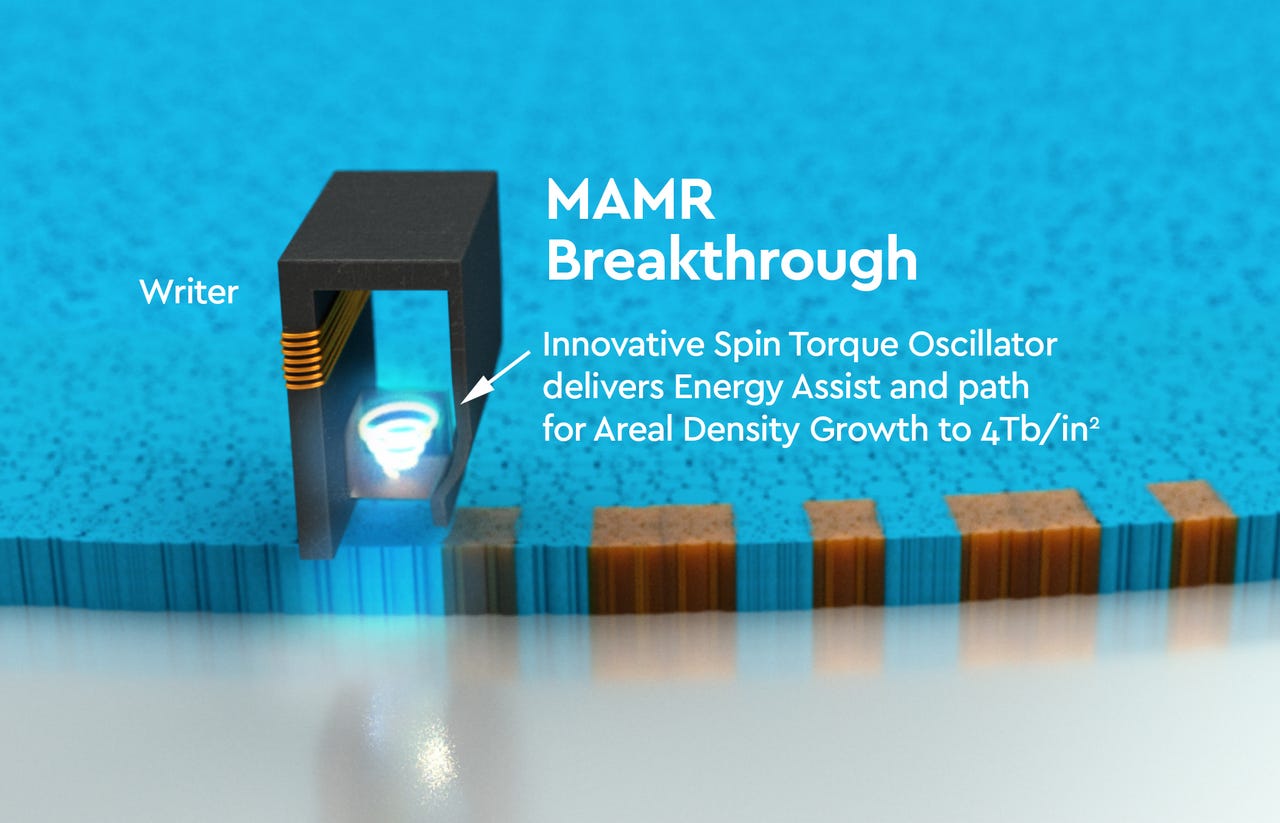Western Digital unveils breakthrough HDD technology


Western Digital on Wednesday announced a technology breakthrough in hard disk drive (HDD) technology that "will fuel the next decade of big data," according to Brendan Collins, Western Digital's VP of Devices. At an event in San Jose, Calif., the company demonstrated microwave-assisted magnetic recording (MAMR), a technology that should enable hard drives with 40TB of capacity and beyond that by 2025.
MAMR offers "all the gain without the pain" of heat-assisted magnetic recording (HAMR), Collins said, bypassing HAMR's problems with cost and reliability.
Ultimately, Western Digital expects MAMR to help HDDs remain a long-term complement to SSDs in the enterprise segment, and it expects capacity enterprise HDD technology to be a growth business through 2030 and beyond.
Western Digital has been quietly investing in MAMR for about eight to nine years. Moreover, its fabrication relies on technologies and processes that Western Digital has already invested in, including Damascene recording head technology, enabling the company to start rolling out MAMR hard drives to the industry by 2019.
At the heart of the MAMR breakthrough is the "spin torque oscillator" used to generate a microwave field that increases the ability to record data at ultra-high density without sacrificing reliability. MAMR is expected to offer over 4 terabits-per-square-inch over time.
"If we look at MAMR and talk about what are the attributes and benefits to a data center manager... We can meet market expectations around dollar per TB," Collins said. "That's what it's all about when it comes to big data."
Meanwhile, since Western Digital does not have to invest in a new fabrication process, the company is "very confident" it can start shipping in 2019, Collins said.
At the same time, the company should have a "multiple-year lead" over its competitors when it comes to MAMR, according to Western Digital president and COO Mike Cordano. He pointed to the years of research Western Digital has put into the technology as well as its prior investments in Damascene. With Damascene, he said, "if you don't have it, it takes time and money to deploy."
An earlier version of this story incorrectly identified Mike Cordano as CEO rather than COO.
Previous and related coverage
NAS Wars 2017: Behind-the-scenes and final results
Welcome to ZDNet's DIY-IT project lab, where we've been stress testing RAID devices for your entertainment and edification. We put seven NAS boxes to the test and, in this final installment, we take you behind the scenes and summarize our results.
Running Hadoop on a Raspberry Pi 2 cluster
Last week I wrote about a 300 node cluster using Raspberry Pi (RPi) microcomputers. But can you do useful work on such a low-cost, low-power cluster? Yes, you can. Hadoop runs on massive clusters, but you can also run it on your own, highly-scalable, RPi cluster.
SanDisk unveils industrial and automotive-grade SD and microSD cards
Need SD or microSD cards that can operate across a broad temperature range? SanDisk has you covered.